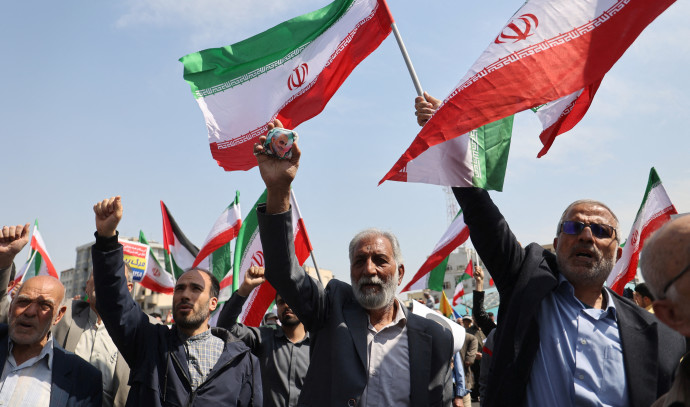A security source in Iran, who requested to remain anonymous in an interview with the Lebanese newspaper Al-Akhbar, claimed that Israel’s response to Iran was restrained due to fear of strong Iranian retaliation.
“The Israeli attack at Isfahan was smaller in scope than the recent Iranian attack that involved 300 missiles,” the source explained.
“Due to this, Iran now has the upper hand in the new balance of power against Israel. However, Tehran is not seeking to increase tension at this time.”
Although the source explained how tensions between Israel and Iran are expected to calm down, confrontation between the two sides is expected to continue in the form of hidden battles.
The United States urged Israel, prior to the retaliation, not to respond to Iran’s attack last week, with US President Joe Biden advising Israel “to be content with the success of confronting the attack.”
Israel’s attack on Iran viewed as a sign of strength
However, following Israel’s attack on Iran that nearly hit a nuclear base, many praised Israel for its strategy. Retired British Army officer Colonel Richard Kemp’s column in the Telegraph explained that Israel’s strike exposed a fatal weakness of Iran.
“Although the International Atomic Energy Agency has made clear that no damage was caused to the nuclear site, Israel’s apparent ability to penetrate Iran’s most heavily defended sites will have triggered enormous concern in Tehran as it gets ever closer to obtaining a nuclear weapons capability,” Kemp wrote.
US officials estimate that Israel’s limited attack on Iran will not lead to a significant escalation, according to the New York Times.
However, there still remains concerns that Tehran will transfer its nuclear facilities to underground sites.







